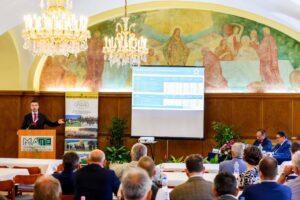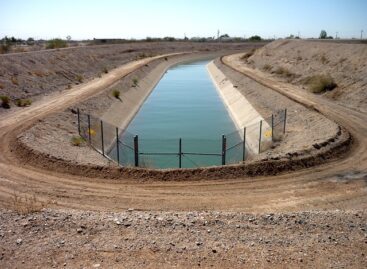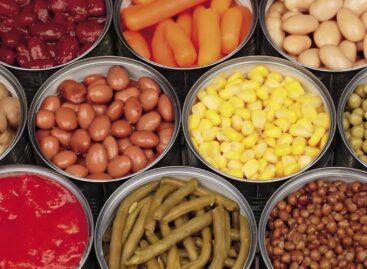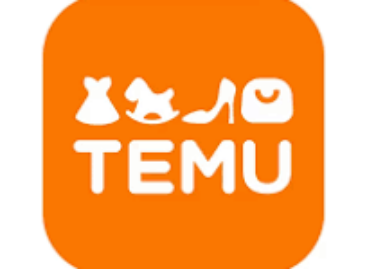The livestock sector can count on the government even in times of difficulty
Last year’s century-long drought, the lack of feed, the increase in input costs, and animal diseases did not make the situation of the livestock industry any easier. The decreasing output of the sector was tried to be alleviated by state aid – for example measures to help liquidity – said Zsolt Feldman at the general meeting of delegates of the Association of Hungarian Livestock Breeders.

(Photo: AM/Csaba Pelsőczy)
The Secretary of State responsible for agriculture and rural development of the Ministry of Agriculture singled out among the governmental aids the calls for site development announced within the framework of the Rural Development Program, which offered the sector a never-before-available opportunity for their efficiency and competitiveness improvements. As he put it, in the last two years, a support decision was made for the livestock farmers for a total of more than HUF 400 billion for the modernization of animal farms.
Several subsidies were paid
Thanks to the payments made in the spring of this year, the agro-environmental management program with an increased budget until the end of 2024 and the advanced support for organic farming have provided serious help in preserving liquidity for farms that also manage grassland and fodder production. For those who contribute to the preservation of the genetic stock of protected indigenous and endangered agricultural animal breeds, following the increase in costs, the subsidy amounts increased by approximately 50% on average compared to the previous tender. Last year, the Ministry of Agriculture announced new animal welfare subsidies on a much wider scale than before – also affecting several sectors – thanks to the government’s additional funding for rural development resources. In addition to the animal welfare support provided so far for the cattle sector, the forms of support related to additional animal welfare commitments have now become available to the entire small ruminant sector, the poultry sector and bee farms, the state secretary listed. Zsolt Feldman evaluated the EU agreement as favorable regarding the EU agricultural and rural development subsidies due to Hungary for the period of the Common Agricultural Policy until 2027. As he put it, together with the outstanding national budget contribution, the source means more help than ever before for rural development, farmers and food processors. The budget for the upcoming agricultural support cycle, the size of the amounts that can be used, is a total of 14.7 billion euros. In relation to the new Common Agricultural Policy Strategic Plan, the state secretary indicated that priority support for animal husbandry will continue, and in the 2023-2027 period, the possibility of maintaining all currently applied measures will remain. In accordance with this, there will be subsidies for developments, the fulfillment of animal welfare regulations or even those related to epidemic prevention.
Loan repayment is also easier
Last year’s century-long drought also forced extraordinary measures, which is why, for example, enterprises working in Hungarian agriculture were given a loan moratorium until the end of this year, which means the postponement of the repayment of approximately HUF 300 billion in loans. The current asset loan programs operated by the Magyar Fejlsztési Bank have now started again, thanks to which even in the current financing environment both agricultural producers and food processors can get loans at an interest rate of around 8%, said Zsolt Feldman.
AM
Related news
Irrigation water resources equivalent to one-third of Lake Balaton are available
Despite the extraordinary drought and lack of precipitation, we can…
Read more >Free irrigation water provided to farmers is a key element in the fight against drought
Free irrigation water provided to farmers is a key element…
Read more >Related news
Temu has already targeted the European food market
The Chinese-rooted Temu is posing an increasingly serious threat to…
Read more >Irrigation water resources equivalent to one-third of Lake Balaton are available
Despite the extraordinary drought and lack of precipitation, we can…
Read more >Free irrigation water provided to farmers is a key element in the fight against drought
Free irrigation water provided to farmers is a key element…
Read more >




